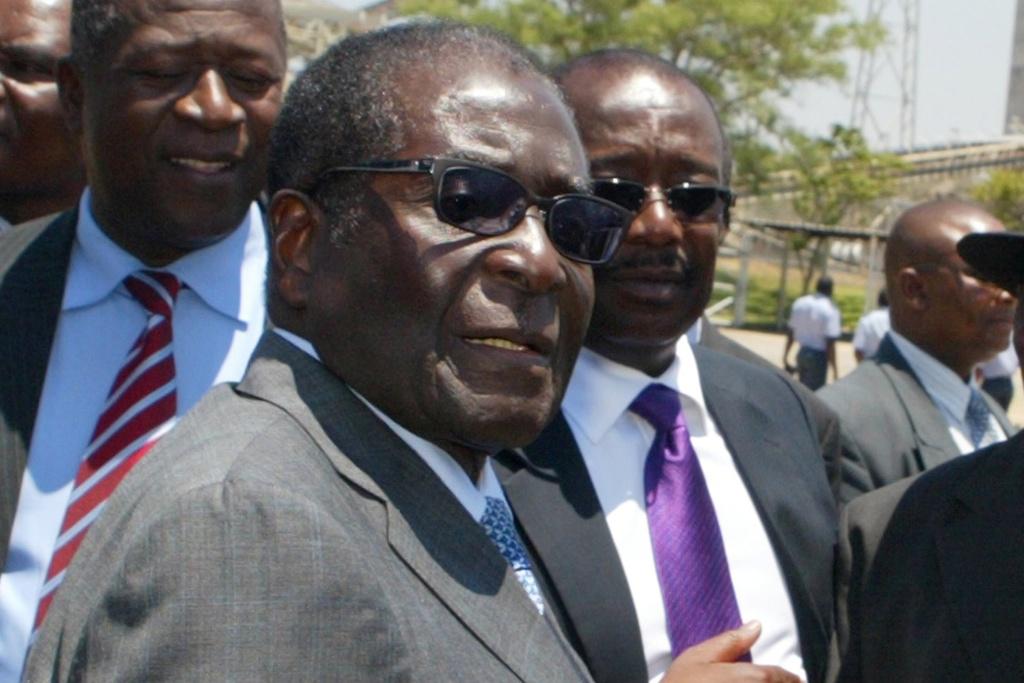EU lifts sanctions on most Zimbabwe officials except for Mugabe
Zimbabwe’s President Robert Mugabe has been angered by a satirical television advertisement by Nando’s chicken. Here Mugabe greets local chiefs at Zimplats mine, outside Harare, on October 13, 2011, where he launched a community ownership trust.
The European Union lifted an asset freeze and a visa ban against most Zimbabwean firms and people on its sanctions list but left restrictions against President Robert Mugabe and a handful of others intact.
Zimbabwe's state-run diamond mining company, the Zimbabwe Mining Development Corporation, will also remain on the sanctions list.
Easing the sanctions was a reward for a "peaceful, successful and credible" referendum on a new constitution on March 16, the EU said in a statement.
At the referendum almost 95 percent of Zimbabweans came out in favor of a new constitution that would trim Mugabe's powers and pave the way for new elections, expected to be held later this year.
The EU imposed the sanctions on Zimbabwe in 2002 in response to human rights abuses and political violence in Mugabe's government.
EU officials withheld immediate details on who remained on the sanctions list but a European diplomat speaking on condition of anonymity confirmed to AFP that Mugabe was among 10 Zimbabweans still targeted by the decade-old European Union measures.
The decision came on the same day that Zimbabwe's high court released prominent human rights lawyer Beatrice Mtetwa on bail.
More from GlobalPost: Rights lawyer Beatrice Mtetwa released on bail in Zimbabwe
Mtetwa had been arrested for obstructing justice during a raid on the offices of the Movement for Democratic Change (MDC), the party led by rival Zimbabwe Prime Minister Morgan Tsvangirai.
The BBC's world affairs correspondent Mike Wooldridge reports that lifting most of the sanctions is clearly intended to encourage further political progress.
AFP contributed to this report.
Every day, reporters and producers at The World are hard at work bringing you human-centered news from across the globe. But we can’t do it without you. We need your support to ensure we can continue this work for another year.
Make a gift today, and you’ll help us unlock a matching gift of $67,000!
